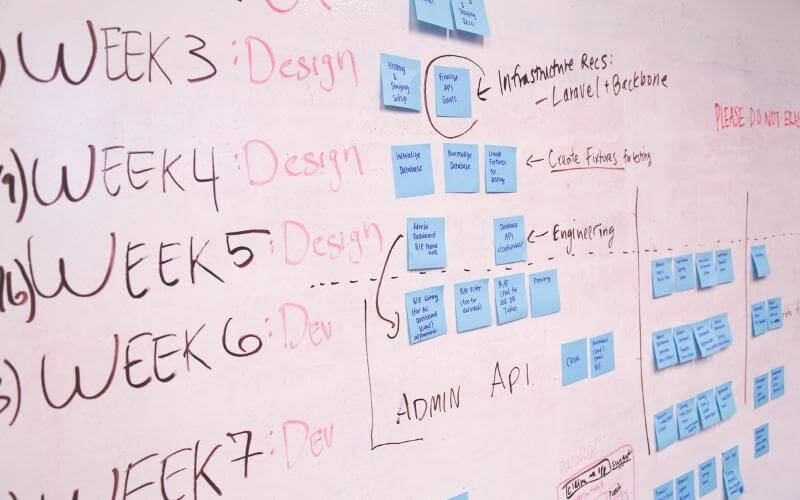Let’s imagine you and some friends want to go away for a weekend. You’ve all worked hard and feel like you deserve some time away. All of this sounds fantastic, but to turn this dream into a reality, you need someone to manage and coordinate the activities your group will be doing. It would help if you had someone to drive this adventure.
When looking at the projects done between companies and their clients, one will require a project manager to oversee the project from start to finish, just as one would planning a weekend away with some friends.
Given the transformation of the modern economy into the ‘project economy,’ project managers now play an important role in much of the work completed by companies, whether the work is simple or complex. Whether the company is involved in construction, telecommunications, or information technology, project management is now a key component in projects undertaken between companies and individuals.
A useful way to understand project management is to divide what project management as a profession entails from what individual managers do.
Project management:
With this being said, project management is leading a team to complete project deliverables within the primary constraints of time, money, and scope. Explaining this in more detail, project management will involve a unique application of tools, skills, techniques, and, importantly, knowledge to complete these projects.
Another aspect of project management involves coordinating resources (for example, the project team, money, and tools) to complete a project or projects assigned to them. This brings us to the importance of the project manager.
Project managers: transforming vision into reality using the principles of project management
By nature, a project manager is a problem solver – they have a good overview of the project, assigning tasks to individuals at the correct time, and making use of tools; they are aware of the amount of risk involved and know-how to monitor and assess the status of projects from start to finish.
The manager’s expertise must be related to the type of projects that they are managing. So, if you need a manager for an IT project, don’t hire one who manages construction projects!
There are some excellent reasons why project management is quite specialized. We mentioned earlier that project management involves applying techniques and a certain kind of knowledge to ensure the projects’ deliverables. While this may seem obvious, the uniqueness of techniques and knowledge gives project managers their value.
As a project manager is responsible for planning, executing, and coordinating the resources needed for projects, this can only be done if the manager knows what all of this involves. Above all, it means a familiarity with all of the processes (whether it is the planning, development, or budgeting process) that any endeavor will involve.
Now, any field of work requiring this sort of familiarity with project processes will involve training individuals (in this case, training those interested in a career in project management). As we have seen, the key to successful projects is hiring competent managers in their field. There are several training institutes for project management, with the most noticeable one being the PMI.
The Project Management Institute:
The PMI, formed in 1969, is a non-profit organization located in the United States; the PMI is the foremost institute for the project management community. It is here that one’s career as a project manager can begin.
The PMI offers a plethora of opportunities for people wanting to advance their careers in project management. This includes providing tools, skills, and certification courses. More value is to be found in the PMI as a global community – with such far outreach, and it is easy to build connections and exchange information with fellow members.
As mentioned, the PMI offers management certification, one of the most important being the Project Management (PMP) certification. As per the PMI, PMP certification is designed to reflect that the possessor of the PMP has the following skills: people management skills (in other words, being able to build good relationships with clients and team members); process (the manager has knowledge of technical project processes); and business environment.
The PMI also cooperates with authorized training partners to help prospective managers earn their PMP certification and offer courses that help them keep their PMI certification. Another component that authorized training partners to offer is training in ‘agile project management.’
This sort of training involves instructors (who have completed the PMI previously) to help and support would-be managers prepare for the PMP exam using PMI-approved course content.
The crucial thing to note here is that professional development is a one-off event; rather, professional development entails constantly updating skills (which can be done through an online course).
What are the 5 stages of project management?
When planning a project, there are various frameworks or methodologies available for organizations to use. However, the framework most often used by business project management is known as the ‘phased’ or ‘traditional’ approach. For project management, the PMI has created the ‘Project Management Body of Knowledge (PMBOK), which breaks the completion of projects into five stages.
5 project management steps
Initiation:
In the initiation stage, the nature, scope, and objectives of the project are determined. It is also during this stage where a budget will be drawn up and a preliminary project schedule. Whether the project is simple or complex, this part is essential; if it is rushed or incomplete, the chances of a successful project diminishes. A key dimension of managing a project is completing a high-quality deliverable to a client; the high value must be placed on the initiation stage.
Planning:
During this critical stage, the team for the project will be selected; with the team selected, each can be assigned the tasks they will need to undertake until the project is finished.
Also, during the project planning stage, the project deliverables will be established, as will the resources needed to transform these deliverables from vision into reality. Finally, another important dimension that is covered here is ‘risk planning.’
Execution:
As the name suggests, the execution stage is where all the previous planning is hammered into reality – this is also where we will see the skills of professional project managers. During the execution stage, they will have to coordinate teams, resources and oversee the organization of the entire project.
Monitoring/controlling:
As progress is being made on projects, some overview is needed to ensure that the project will finish on time, that it is still within budget, and that the project quality remains high. If any obstacles are inhibiting the projects’ finishing, these will be addressed during this stage.
Closing:
This stage represents the end of the project lifecycle – whereby it is formally agreed between the business and client that all projects have finished. From the perspective of the business, what is useful to do here is to document what went well and seek out necessary improvements – this could take the form of additional training for teams, better resource management, or even correcting certain company procedures.
Best practices for project management
We mentioned at the very beginning that the success of an organization is dependent on the quality of the projects it produces.
Fortunately, when it comes to best practices that impact the success of a project, we do not have to re-invent the wheel, for there are agreed-upon practices that can see organizations repeatedly succeed.
The first best practice for success is the development of a proper plan which encompasses all dimensions of the project – from organizing resources and assigning a task to teams to coordinating with both the client and business, a good plan is a must.
Secondly, communication throughout a projects’ duration is essential (both with the client and within the business). This is essential because one cannot obtain a clear overview of what needs to be done without it.
Finally, as a manager, one has to review the success of the job done honestly. It may turn out that additional training is required for future projects – this could take the form of training for managers or training for certain team members.
What are some good project management software solutions?
It is no secret that even before the onset of COVID-19, online work was becoming increasingly important. Of course, project management is not immune from this move to online work. Several software solutions make online work easier – such as Monday.com, Wrike, or Clarizen. Any software solution will be selected according to the unique requirements of organizations.
What is important to realize here is that the career of project management is changing. If one wants to pursue this career in the future, knowing software and navigating and accessing online work is essential comfortably. Thankfully, as we have already seen, institutions such as the PMI support the updated job requirements.
Project Management Drives Change
We mentioned earlier that the value delivered by projects characterizes the modern economy. In fact, it was the recognition of this fact which underscored the founding of the PMI in the first place. Driven by the critical need to provide people specializing in management, the PMI has helped turn project management into a stable career. The primary impact of this is that a business can improve its services.
What does good project management look like?
Besides utilizing best practices, a good project manager has the ability to be agile. In this context, being agile means having the ability to quickly respond to challenges without compromising the success or quality of a project.





